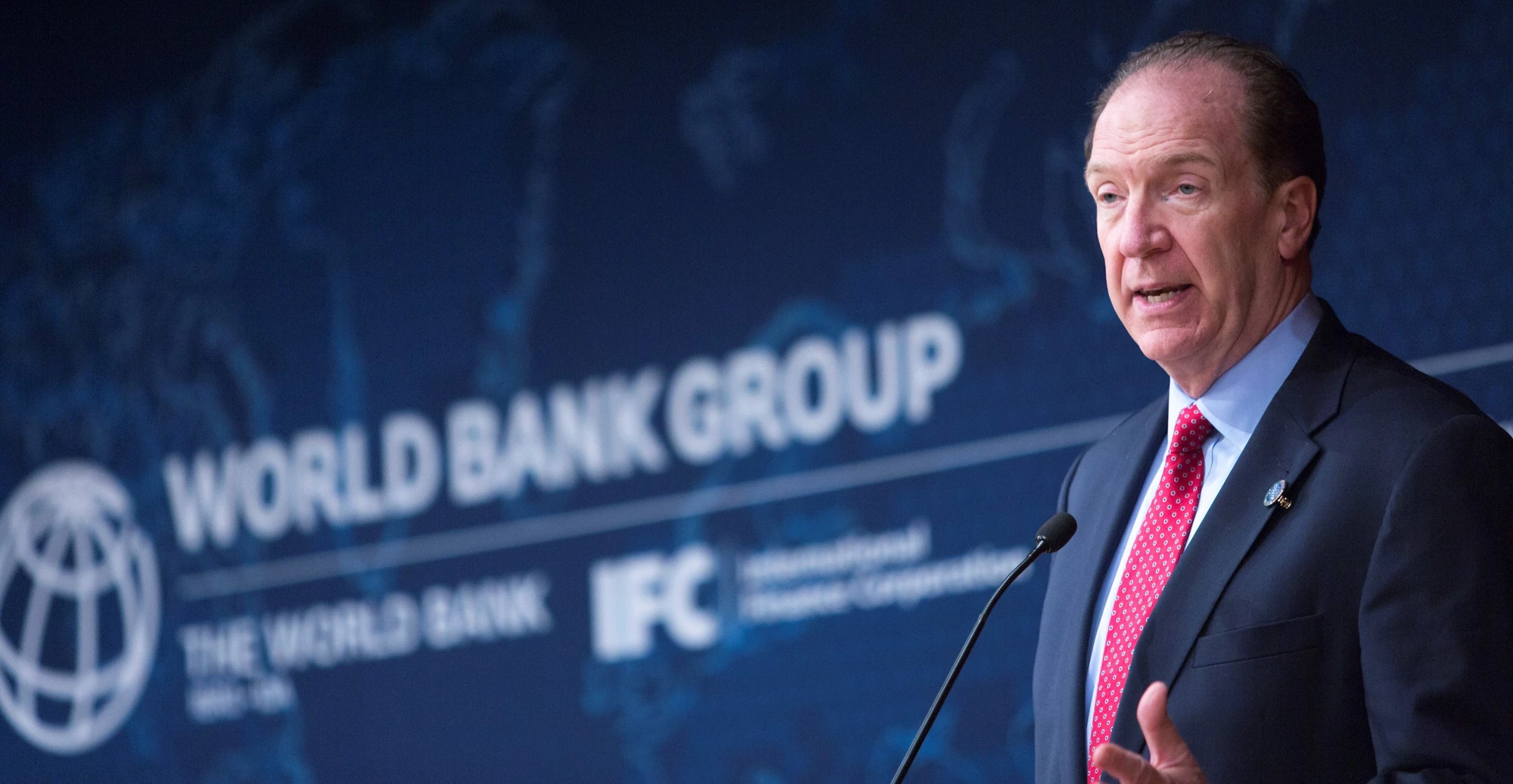 デイビッド・マルパス世界銀行グループ総裁 写真: © Simone D. McCourtie/世界銀行
デイビッド・マルパス世界銀行グループ総裁 写真: © Simone D. McCourtie/世界銀行
Over the past week, the crisis related to COVID-19 has continued to worsen. Below is my summary of some of the World Bank Group’s activities in response.
- On Tuesday, March 17, the Boards of the World Bank and International Finance Corporation approved an increased $14 billion Fast Track Facility (FTF) to assist countries and companies in their efforts to prevent, detect, and respond to the rapid spread of COVID-19.
- At the end of the week, World Bank teams are preparing projects in 40 countries for up to $1.7 billion under the FTF. Operations in Afghanistan and Ethiopia are the most advanced, and will be presented to our Board next week. Decision meetings for 14 other countries will take place next week as well, and will create a framework for rapid responses in other countries. This approach will allow us to quickly duplicate an operation in the same country, for example if other MDBs wish to co-finance a follow up tranche; and to quickly replicate an operation in one country in multiple countries.
- In addition to the fast track facility, COVID-19 support is being provided via restructuring of existing projects. Thus far, projects in 24 countries for up to $1.5 billion are in the works and span every region in which we operate. IFC is also actively working to start extending trade finance and working capital lines to clients. Regular Board action on these efforts is expected over the next 2-4 weeks.
- On Wednesday, March 18, I spoke by video conference with the Global Preparedness Monitoring Board (GPMB), which is co-chaired by Dr. Gro Harlem Brundtland, former Prime Minister of Norway and former WHO Director-General, and Mr. Elhadj As Sy, former Secretary General of the International Federation of Red Cross and Red Crescent Societies. With several colleagues, we discussed the spread of COVID-19, actions needed to develop new diagnostics, therapeutics, and vaccines, and G20 support for CEPI, the Coalition for Epidemic Preparedness Innovations.
- I had a discussion on similar topics last week with the co-chairs of the Bill & Melinda Gates Foundation. Although I had been scheduled to meet Bill & Melinda in person in Seattle, we had a productive video conference and discussed the important partnership between the World Bank Group and the Gates Foundation, focusing on the COVID-19 response.
- On Thursday, our World Bank Vice President for the Middle East & North Africa, Ferid Belhaj, virtually convened finance ministers and central bank governors from the MENA region to discuss their needs and the response to COVID-19. Last week, our World Bank Vice President for Africa, Hafez Ghanem convened over 40 African finance ministers and central bank governors to discuss their needs.
- Importantly, we have identified a range of rapid procurement modalities to support bulk purchasing, in addition to standard country-led procurement. We are working together with other MDBs and the IMF, including a March 19 video conference chaired by World Bank Managing Director Axel van Trotsenburg, to assess and respond to immediate health needs, co-finance country programs, and prepare for long-term economic impact.
- Other important Bank operations are continuing. For example, on Monday, March 16, the World Bank reallocated $13.8 million of an existing project to enhance control of desert locust invasion in Kenya. This includes funding for surveillance aircrafts, vehicles, equipment, ground and aerial spraying, livelihood restoration, and setting up 6 ground stations that will be main coordinating locations for the locust control operations. While we are intensely focused on slowing the spread of COVID-19, we must also remain vigilant toward other threats.
Our workforce has moved to home-based working. The transition is challenging, and the Bank’s internal communications on both progress and setbacks was frequent during the week. I am encouraged to see the resilience of our staff in maintaining focus on urgent activities, and pleased with the communications technology -- on Monday, for instance, we had 800 concurrent video sessions at one point in the day worldwide and a total of 3,700 over the course of the day. The system, close working relationships, and global expertise should allow our work to continue.
Next week will bring many urgent challenges. My heartfelt thanks to our staff and colleagues around the world who are working with vigor and patience to address this ongoing crisis.
Originally published on LinkedIn.


Join the Conversation